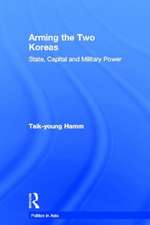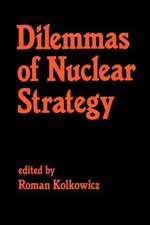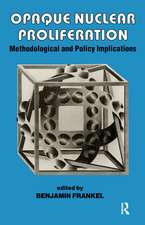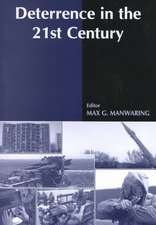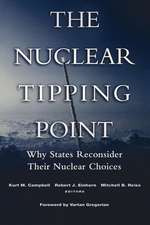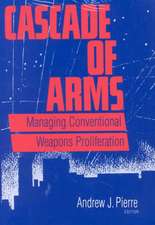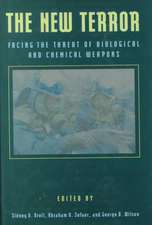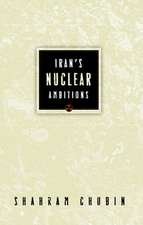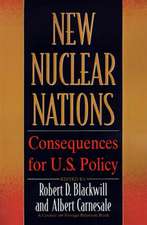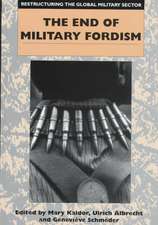Pakistan: Between Mosque and Military
Autor Husain Haqqanien Limba Engleză Paperback – 28 iun 2005
Among U.S. allies in the war against terrorism, Pakistan cannot be easily characterized as either friend or foe. Nuclear-armed Pakistan is an important center of radical Islamic ideas and groups. Since 9/11, the selective cooperation of president General Pervez Musharraf in sharing intelligence with the United States and apprehending al Qaeda members has led to the assumption that Pakistan might be ready to give up its longstanding ties with radical Islam. But Pakistan's status as an Islamic ideological state is closely linked with the Pakistani elite's worldview and the praetorian ambitions of its military. This book analyzes the origins of the relationships between Islamist groups and Pakistan's military, and explores the nation's quest for identity and security. Tracing how the military has sought U.S. support by making itself useful for concerns of the moment—while continuing to strengthen the mosque-military alliance within Pakistan—Haqqani offers an alternative view of political developments since the country's independence in 1947.
Preț: 153.74 lei
Nou
Puncte Express: 231
Preț estimativ în valută:
29.42€ • 32.06$ • 24.79£
29.42€ • 32.06$ • 24.79£
Carte tipărită la comandă
Livrare economică 23 aprilie-07 mai
Preluare comenzi: 021 569.72.76
Specificații
ISBN-13: 9780870032141
ISBN-10: 0870032143
Pagini: 397
Dimensiuni: 152 x 229 x 26 mm
Greutate: 0.66 kg
Editura: Brookings Institution Press
Colecția Carnegie Endowment for Int'l Peace
Locul publicării:United States
ISBN-10: 0870032143
Pagini: 397
Dimensiuni: 152 x 229 x 26 mm
Greutate: 0.66 kg
Editura: Brookings Institution Press
Colecția Carnegie Endowment for Int'l Peace
Locul publicării:United States
Notă biografică
Husain Haqqani is a visiting scholar in the South Asia Project at the Carnegie Endowment for International Peace and an associate professor of International Relations at Boston University. He is former adviser to Pakistani prime ministers, and has served as Pakistan's ambassador to Sri Lanka.
Descriere
Among U.S. allies in the war against terrorism, Pakistan cannot be easily characterized as either friend or foe. Nuclear-armed Pakistan is an important center of radical Islamic ideas and groups. Since 9/11, the selective cooperation of president General Pervez Musharraf in sharing intelligence with the United States and apprehending al Qaeda members has led to the assumption that Pakistan might be ready to give up its longstanding ties with radical Islam. But Pakistan's status as an Islamic ideological state is closely linked with the Pakistani elite's worldview and the praetorian ambitions of its military. This book analyzes the origins of the relationships between Islamist groups and Pakistan's military, and explores the nation's quest for identity and security. Tracing how the military has sought U.S. support by making itself useful for concerns of the moment—while continuing to strengthen the mosque-military alliance within Pakistan—Haqqani offers an alternative view of political developments since the country's independence in 1947.


